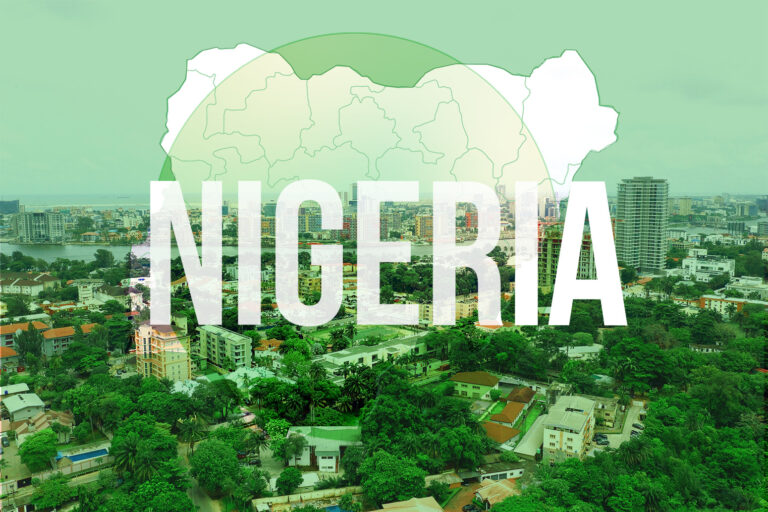In a high-powered room on the 14th floor of the NASDAQ Building in Times Square, New York, global finance giants and top investors from firms like JP Morgan and Standard Chartered gathered to hear Nigeria’s pitch. Alongside them were influential members of the Nigerian diaspora, including the Governor of the Central Bank of Nigeria (CBN), Olayemi Cardoso, CEO of the Nigerian Exchange (NGX) Temi Popoola, and CEO of the Central Securities Clearing System (CSCS) Haruna Jalo Waziri.
The mission was clear: Nigeria is open for business, and it wanted the world to know.
This gathering was one of many side events at the IMF and World Bank Spring Meetings, part of Nigeria’s broader campaign to attract foreign investment and shift the narrative surrounding its economic prospects. However, while the message from the Nigerian delegation was one of progress and reform, the response from investors revealed a more complex reality filled with hope, hesitation, and tough questions.
Nigeria’s Moment to Shine
On paper, this was Nigeria’s moment to shine. Governor Cardoso spoke with conviction, defending the bank’s aggressive policies—interest rate hikes, exchange rate liberalization, and addressing the FX backlog. He openly acknowledged the challenges the country faced before he took office and emphasized the progress made since then. There was no sugarcoating—he laid out the facts, standing firmly behind his playbook.
To my surprise, foreign investors listened with respect, not skepticism. Many were impressed by the pace and discipline of the reforms, which they hadn’t expected to see. However, as the discussions deepened, so did their concerns.
A Word That Kept Coming Up: Uncertainty
The word that repeatedly came up was “uncertainty.” Investors weren’t just concerned about Nigeria; they were anxious about the world at large. With figures like Donald Trump back on the political stage, fears over rising protectionism in the U.S. were casting long shadows over emerging markets. A potential shift in oil prices due to U.S. tariffs could heavily impact Nigeria’s fragile fiscal plan—especially since oil remains the country’s economic lifeline.
But the concerns didn’t stop there. Investors kept circling back to a pressing question: How are ordinary Nigerians coping with these reforms?
They expressed concerns not just about inflation or the exchange rate, but about the visible economic pain on the streets of Lagos, Kano, and Port Harcourt. They noted that while palliative measures were in place, they were insufficient. The social safety nets, they said, were too shallow. They questioned how long Nigerians could endure this level of economic adjustment without backlash or social unrest.
The IMF’s Take: Bold Reforms, But Challenges Remain
It wasn’t just the investors who raised these issues. The IMF echoed similar concerns. While acknowledging that Nigeria’s policy reforms were bold and necessary, the IMF projected weaker GDP growth than the Nigerian government’s forecast. They warned that inflation was still too high and would likely continue to rise. Poverty was increasing, and growth could be jobless and exclusive unless social support systems were urgently strengthened.
During another session with the Federal Ministry of Finance and the CBN, international investors posed tough questions. One investor asked, “Have you factored in falling oil prices in your 2025 budget projections?”
The Finance Minister gave a diplomatic response, acknowledging the concerns and mentioning a task force working on alternative revenue sources. But it was clear—the overreliance on oil revenues remained a major challenge, and efforts to diversify the economy were more of a goal than a reality.
Obstacles: Oil Dependency, Bond Exclusion, and Data Gaps
Investors also pointed to Nigeria’s absence from the JP Morgan bond index. For many foreign portfolio managers, this exclusion is a deal-breaker—it limits their ability to invest in Nigerian assets, no matter how attractive the returns are. The Director General of the Debt Management Office confirmed that Nigeria had met the criteria, but the inclusion process was still ongoing, with no timeline in sight.
Moreover, despite improvements in data transparency by the CBN, investors remained frustrated with the Ministry of Finance’s data. Inconsistent and poor-quality fiscal data remains a stumbling block for foreign investors. The Nigerian delegation assured them that reforms were underway, but once again, no clear timelines were given.
A Shift in Tone: Acknowledging Progress, But Awaiting Stability
Despite these concerns, I sensed a shift in attitude. Unlike previous years, where Nigerian officials were met with skepticism, this time, investors acknowledged the progress made. They weren’t certain how durable this progress would be or how it would withstand political shocks—both domestic and global—but there was respect for the strides made.
The hard part—the policy reforms that many other countries avoid—had been tackled. Now, Nigeria faces the toughest challenge: waiting. Waiting for oil prices to rise, waiting for global trade uncertainties to settle, and waiting for rating agencies to catch up. While Fitch recently upgraded Nigeria’s credit rating, others like Moody’s and S&P remain cautious.
The Path Ahead: Can Nigeria Finish the Race?
Many of the risks that still hang over Nigeria are beyond its control. That’s the painful irony. The reforms are in place, but the road ahead is bumpy, and the global economic environment is uncertain. The fears surrounding U.S. protectionism and the slowdown of global growth are real, and Nigeria remains the poverty capital of the world.
A foreign investor summed it up after one session: “You’ve fixed many of the issues that made us walk away. Now we just need to see stability. If that happens, billions of dollars will come rolling in.”
The hope is that Nigeria is not only running a good race but one it can finish.

